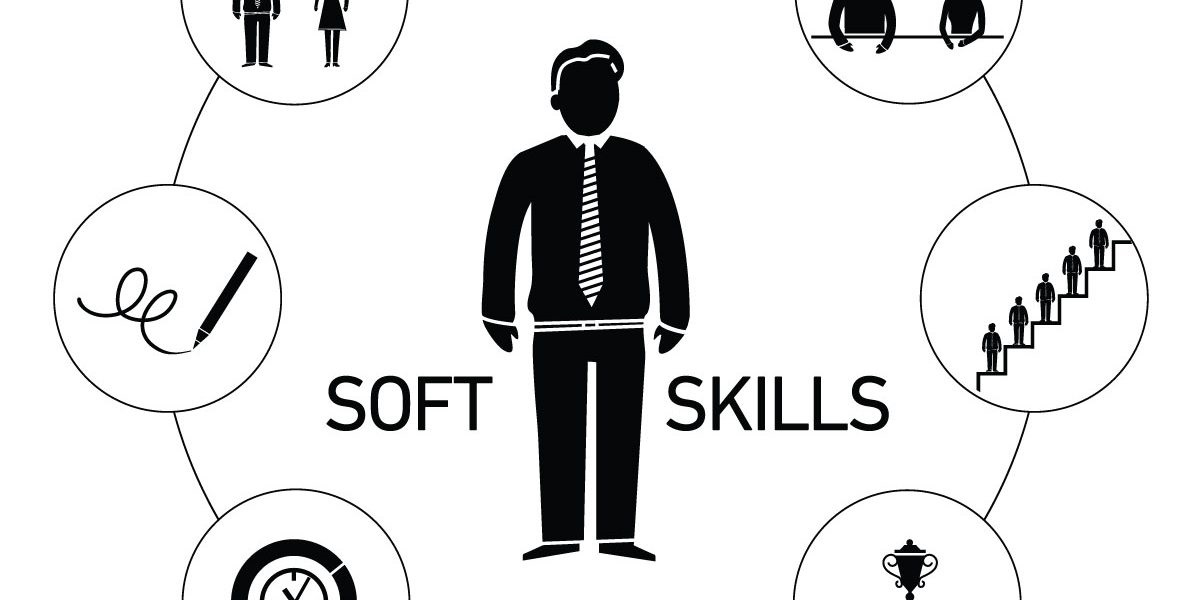Emotional intelligence; collaboration; complex problem-solving – these make up just some of 2020’s most important skills. The World Economic Forum caused a stir when it revealed its Future of Jobs report on the key skills of 2020 that organisations should be seeking when hiring, and prioritising in professional development. What sparked some controversy was its clear emphasis on the need for soft skills. In fact, not a single ‘hard’ or technical skill was listed.
The technological revolution has fundamentally changed the game. It has shifted organisational priorities and altered the skillsets that businesses need. As automation and AI have and continue to change the nature of work, the workforce must harness the social, emotional, and other abilities that machines cannot. Likewise, organisations will need to adapt to the new reality, which means adjusting the ways they assess, educate, train, and reward their employees on soft skills.
But developing soft skills is no easy task. It’s a slow process that involves fundamentally altering personalities, habits and other non-technical competencies. But how can organisations achieve this increasingly pressing task?
This article aims to discuss soft skills, answering three central questions: what are soft skills? Why are they so important? And how can both organisations and individuals develop them?
So, what are soft skills?
Simply put, soft skills are defined as non-technical skills. They allow one to interact effectively with others. Vital to business, soft skills can shape and direct company culture, leadership and behaviours.
And they are indeed vital; the World Economic Forum accredits the following skills required in 2020 as some of the most critical:
- Complex problem-solving
- Critical thinking
- Creativity
- People management
- Coordinating with others
- Emotional intelligence
- Judgment and decision-making
- Service orientation
- Negotiation skills
- Cognitive flexibility
It is a shift in priorities for business that is so important that reskilling at scale has become a large concern and priority for 80% of C-suite executives worldwide.
So why are businesses prioritising the development of soft skills?
As reported by iCIMS Hiring Insights: ‘Ninety-four percent of recruiting professionals believe an employee with stronger soft skills has a better chance of being promoted to a leadership position than an employee with more years of experience but weaker soft skills.’ It’s not difficult to see why. Soft skills form the vital link between colleagues, fostering collaboration across teams and departments, and enable clear direction ensuring organisational alignment. They are hugely important to effective communication, problem-solving, and organisation – all paramount to succeeding in the business world, as an employee and employer.
Soft skills are essential to finding, attracting, and retaining clients. Their importance is well evidenced in recent findings. An example in India shows that the employees trained in soft skills are 12% more productive than those without them. Talentlms reports ‘organizations that foster soft skills like collaboration are outperforming those that don’t.’ (referencing Melissa Suzuno, Top 10 Soft Skills for 2019 in the Workplace).
There is a large incentive in developing soft skills as it can cut costs significantly. When soft skills are lacking, colleagues can become prone to conflict, suffer from low self-confidence, feel unheard and misunderstood, and unhappy. Indeed, dissatisfied employees can be driven to absenteeism, poor performance, low quality work, and increased turnover.
Why then, according to Linkedin, do almost 60% of hiring managers struggle to screen candidates with relevant soft skills? How should businesses seek to shape employee behaviours and competencies? Here are ways your organisation can develop soft skills in your employees…
Personalised training
Personalised training is extremely valuable to employees in developing their soft skills. Taking a holistic approach, and investing time and resources into one-to-one coaching, effective performance management, as well as leadership and mentoring will all help promote soft skill development. Seminars that promote the value of self-reflection and how soft skills, like active listening, can improve employee experience are useful, too.
Create a culture of mentorship
Creating an environment that triumphs mentorship instils the idea of learning and development into company culture. It ensures all employees across teams and departments are dedicated to each other’s growth, in addition to their own. Employers should aim to understand what skills are especially valued in their organisation to align soft-skill development with the company direction. Establishing a learning environment and providing tools that enable colleagues to share their experiences are beneficial for an entire organisation.
Provide continual feedback
Creating an environment that triumphs continual feedback can help reinforce soft skills. Check-ins (defined as a series of regular conversations between managers and employees about work, progress, and goals throughout the year) are great ways to achieve this end.
Moving from annual appraisals and the apathy they generate to frequent check-ins, could be complemented with ongoing soft-skills training. Managers can provide personalised training suggestions off the back of feedback reports.
It’s important to remember that soft skills, like personal resilience and emotional intelligence, are very personal changes that will require time, patience, and continual reinforcement, so it’s important to engage in ongoing, long-term training that fosters this.
Be sure to make soft skills tangible.
Soft skills have historically been discounted by organisations because they’re seen as intangible. The inability to quantifiably measure soft skills has made their value vastly underappreciated.
Nowadays however, we are equipped with the means to measure non-technical skills. For instance, HR software like Cezanne HR can help you quantify:
- engagement
- business objectives
- retention, and
- 360-degree assessments.
These metrics are well worth investing in, to arm your team with insights to benchmark development.
Providing a practical use for soft-skills training is essential to making it stick. Employers should articulate a balanced blend of soft and harder more technical skills for their roles. This would help demonstrate to employees that what they’re learning can be translated into practice, and give them ongoing reinforcement of the skills necessary in optimal professional development.
To read more about the increasing importance of soft skills, read here.
